Introducing the BuildBear VSCode Extension: Enhanced Smart Contract Development on VSCode IDE.
 BuildBear
BuildBear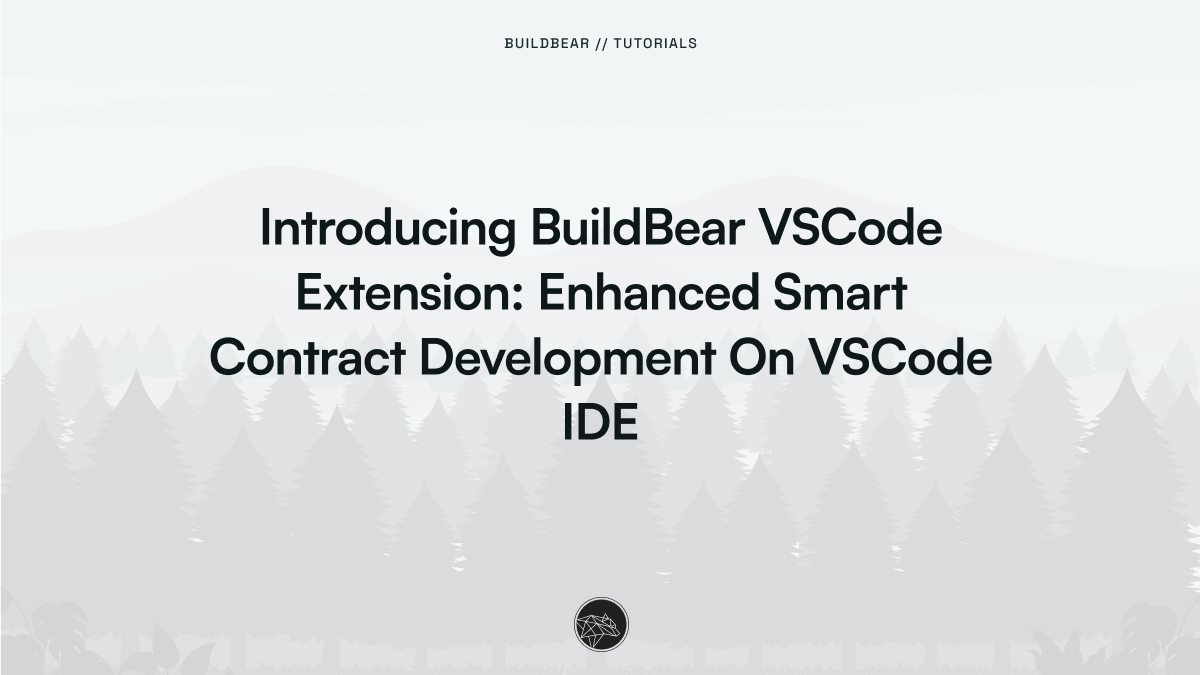
We are excited to announce the launch of the BuildBear VSCode Extension. This extension offers a seamless and efficient way to create private sandboxes for EVM and EVM-compatible blockchain networks. With its unique features like a private faucet and an integrated explorer, BuildBear stands out as an essential tool for developers in the blockchain space.
Key Features of BuildBear VSCode Extension
Private Faucet: Access an exclusive faucet for unlimited minting of Native and ERC20 tokens.
Rapid Transactions: Enjoy swift transactions within the BuildBear Sandbox, with completion times under 3 seconds.
Built-In Explorer: Debug transactions effortlessly within your sandbox, thanks to the integrated explorer and transaction tracer.
Getting Started with BuildBear
Step 1: Install the BuildBear Extension
Open the Extensions Marketplace in VSCode.
Search for "BuildBear".
Click "Install" on the BuildBear Extension.
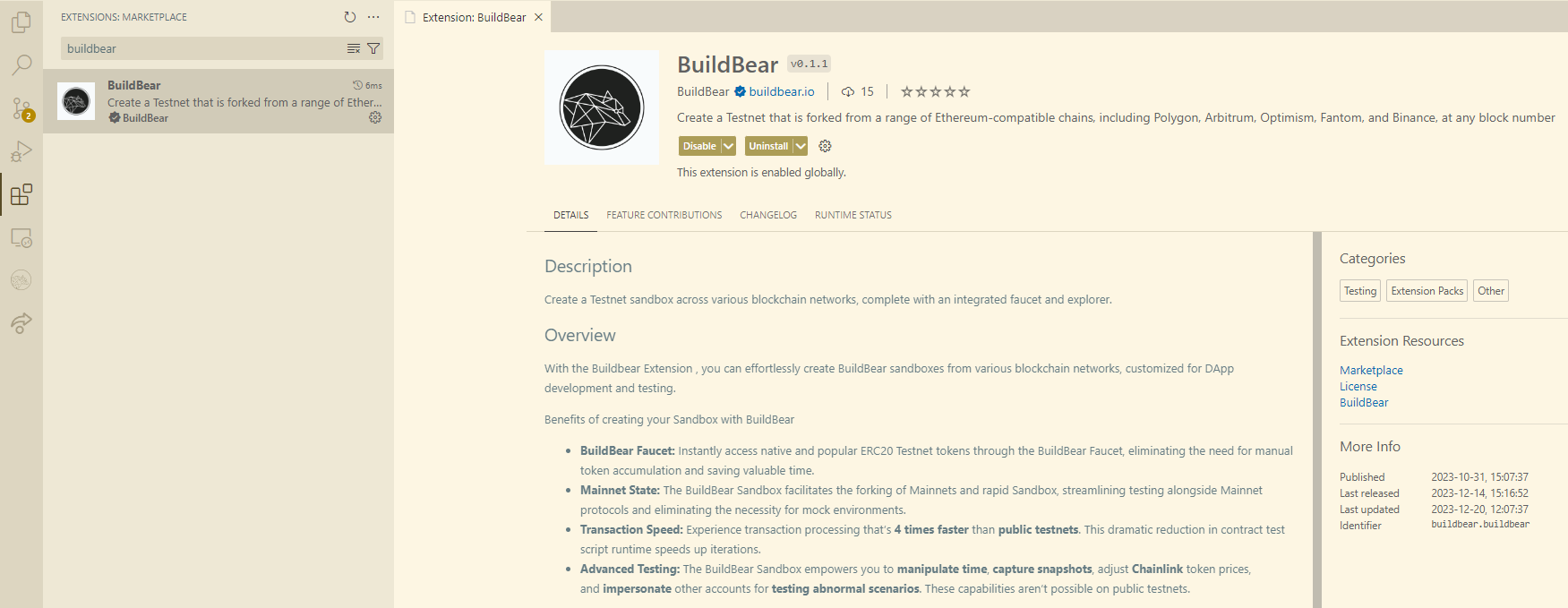
Step 2: Create your BuildBear Sandbox
- Choose your preferred blockchain network.
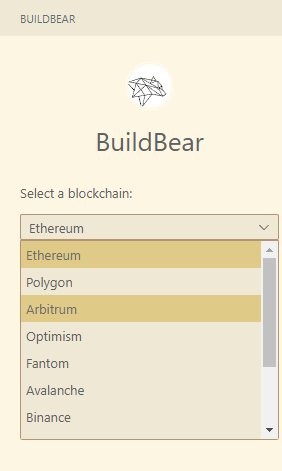
- Click "Create" to generate your Private Sandbox. Your sandbox details will appear shortly.

Step 3: Explore Sandbox Options
- RPC: Use the Sandbox RPC for connecting your sandbox to development tools like Foundry and Hardhat.
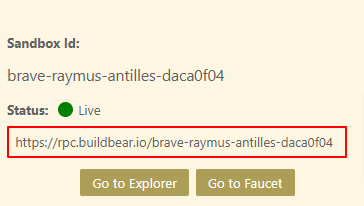
- Go to Faucet: Access your sandbox's faucet to mint Native and ERC20 tokens.
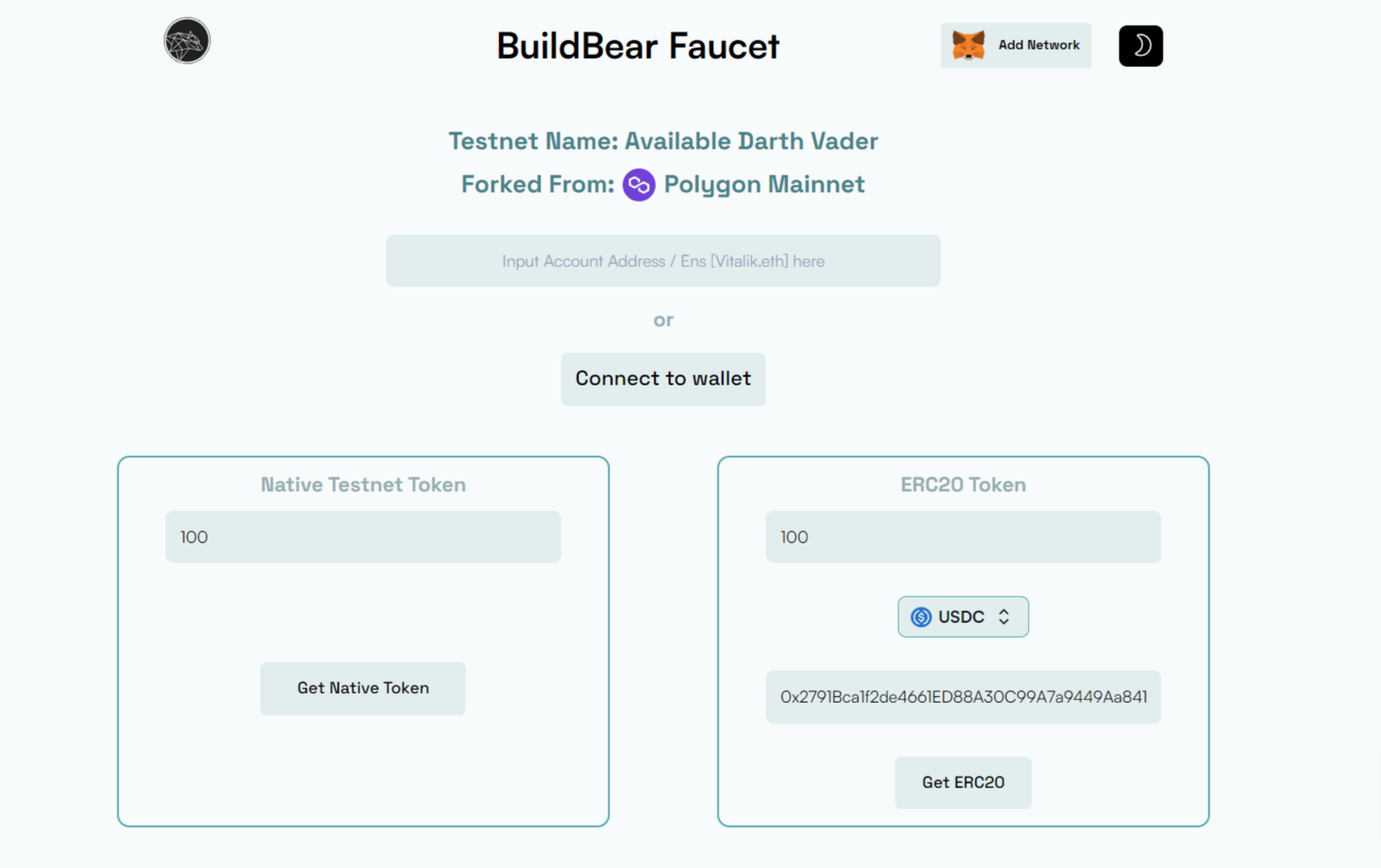
- Go to Explorer: View and interact with transactions, deployed contracts, and debug with the transaction tracer.
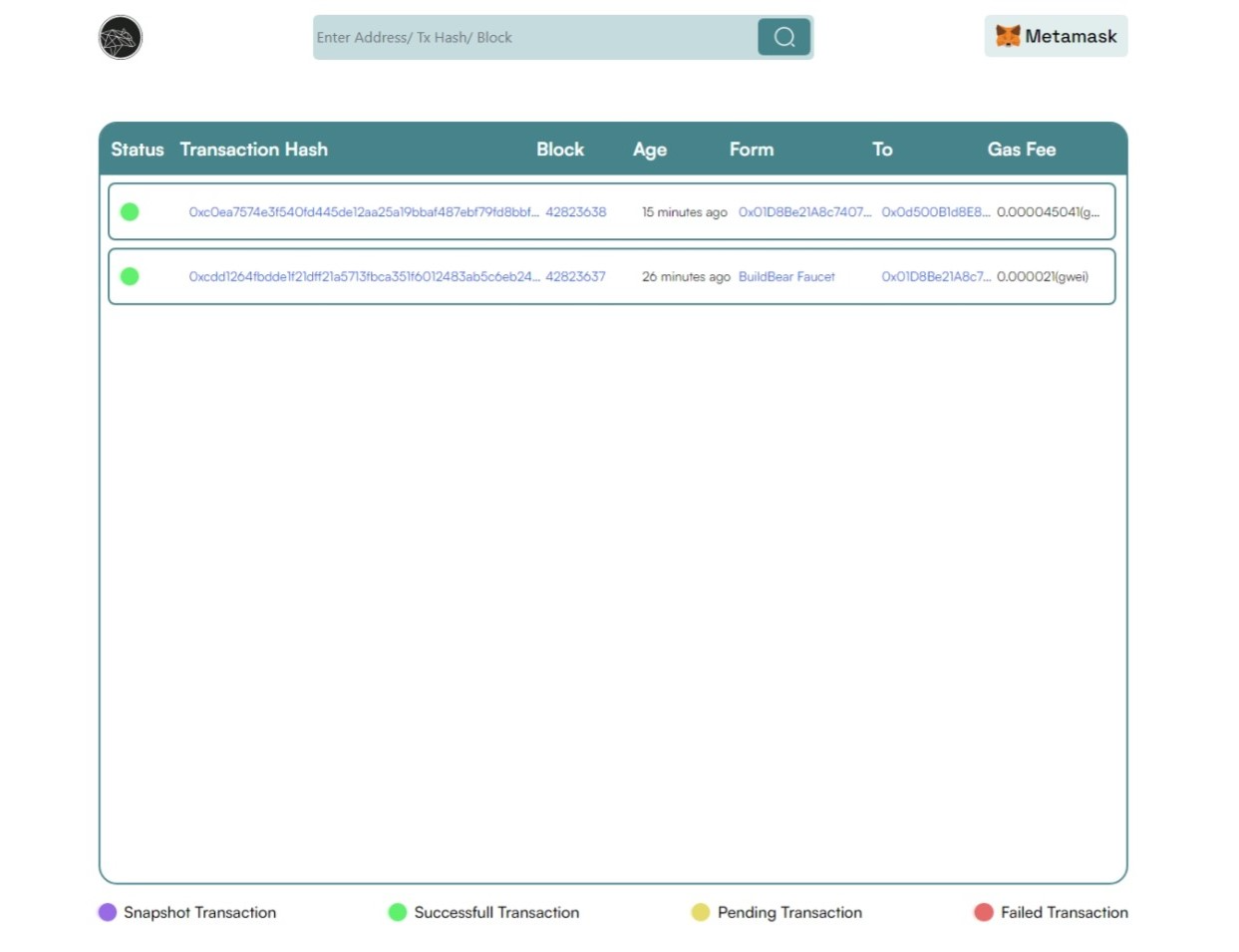
Deploying and Verifying Contracts
Through Hardhat
- Add BuildBear to your network in the
hardhat.config.jsorhardhat.config.tsfile.
networks: {
buildbear: {
url: "<https://rpc.buildbear.io/Sandbox_ID>",
}
}
- Add a Custom Chain to the Etherscan Object for seamless integration.
etherscan: {
apiKey: {
buildbear: "verifyContrats"
}
customChains: [
{
network: "buildbear",
chainId: CHAIN_ID,
urls: {
apiURL:"<https://rpc.buildbear.io/verify/etherscan/Sandbox_ID>",
browserURL: "<https://explorer.buildbear.io/node/Sandbox_ID>",
},
},
],
}
Through Foundry
- Update your
Foundry.tomlfile to include BuildBear's RPC endpoints and Etherscan configurations.
[rpc_endpoints]
buildbear = "<https://rpc.buildbear.io/Sandbox_ID>"
[etherscan]
buildbear = { key = "verifyContract", url="<https://rpc.buildbear.io/verify/etherscan/Sandbox_ID>" }
- Deploy contracts using simple command-line instructions.
forge script script/<SCRIPT_NAME>.s.sol --rpc-url buildbear --private-key "<PRIVATE_KEY>" --broadcast --slow
To verify the deployed contracts, execute the following command:
forge verify-contract --constructor-args "" --etherscan-api-key "verifyContract" --verifier-url "<https://rpc.buildbear.io/verify/etherscan/gradual-blade-6d2a5b2a>" <DEPLOYED_CONTRACT_ADDRESS> <PATH>/<CONTRACT_NAME>.sol:<CONTRACT_NAME>
Support and Community
Encountering issues or need assistance? Reach out to us at team@buildbear.io or join our Telegram community for support and updates.
About BuildBear:
BuildBear is a platform for testing dApps at scale, for teams. It provides users with their own private Testnet to test their smart contracts and dApps, which can be forked from any EVM chain. It also provides a Faucet, Explorer, and RPC for testing purposes.
BuildBear aims to build an ecosystem of tools for testing dApps at scale for the teams.
Subscribe to my newsletter
Read articles from BuildBear directly inside your inbox. Subscribe to the newsletter, and don't miss out.
Written by

BuildBear
BuildBear
BuildBear is a platform for testing dApps at scale, for teams. It provides users with their own private Testnet to test their smart contracts and dApps, which can be forked from any EVM chain. It also provides a Faucet, Explorer, and RPC for testing purposes.